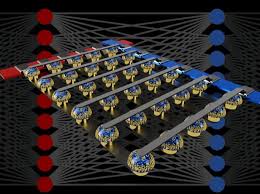
Breaking News
 Schiff on Coindesk: Gold Ain't Broke. Don't Fix It.
Schiff on Coindesk: Gold Ain't Broke. Don't Fix It.
 Oil, Drugs, and Security. How Trump Plans To "Run" Venezuela
Oil, Drugs, and Security. How Trump Plans To "Run" Venezuela
 19 US States Raise Minimum Wage
19 US States Raise Minimum Wage
 America's Fraud Is Bigger Than You Think
America's Fraud Is Bigger Than You Think
Top Tech News
 Kawasaki's four-legged robot-horse vehicle is going into production
Kawasaki's four-legged robot-horse vehicle is going into production
 The First Production All-Solid-State Battery Is Here, And It Promises 5-Minute Charging
The First Production All-Solid-State Battery Is Here, And It Promises 5-Minute Charging
 See inside the tech-topia cities billionaires are betting big on developing...
See inside the tech-topia cities billionaires are betting big on developing...
 Storage doesn't get much cheaper than this
Storage doesn't get much cheaper than this
 Laser weapons go mobile on US Army small vehicles
Laser weapons go mobile on US Army small vehicles
 EngineAI T800: Born to Disrupt! #EngineAI #robotics #newtechnology #newproduct
EngineAI T800: Born to Disrupt! #EngineAI #robotics #newtechnology #newproduct
 This Silicon Anode Breakthrough Could Mark A Turning Point For EV Batteries [Update]
This Silicon Anode Breakthrough Could Mark A Turning Point For EV Batteries [Update]
 Travel gadget promises to dry and iron your clothes – totally hands-free
Travel gadget promises to dry and iron your clothes – totally hands-free
 Perfect Aircrete, Kitchen Ingredients.
Perfect Aircrete, Kitchen Ingredients.
 Futuristic pixel-raising display lets you feel what's onscreen
Futuristic pixel-raising display lets you feel what's onscreen
IBM Investing $2 Billion in an AI Center and Targets 1000 Times Improvement by 2029

IBM is partnering with State University of New York to develop an AI Hardware Center at SUNY Polytechnic Institute in Albany. New York will also provide a subsidy of $300 million.
The IBM Research AI Hardware Center will enable IBM and their partner ecosystem to achieve 1,000x AI performance efficiency improvement over the next decade. They will overcome current machine-learning limitations by using approximate computing with Digital AI Cores and in-memory computing with Analog AI Cores.
Approximate Computing with Digital AI Cores
The best hardware platforms for training deep neural networks (DNNs) has just moved from traditional single precision (32-bit) computations towards 16-bit precision. This is more energy efficient and uses less memory. IBM researchers have successfully trained DNNs using 8-bit floating point numbers (FP8) while fully maintaining the accuracy of deep learning models and datasets.



